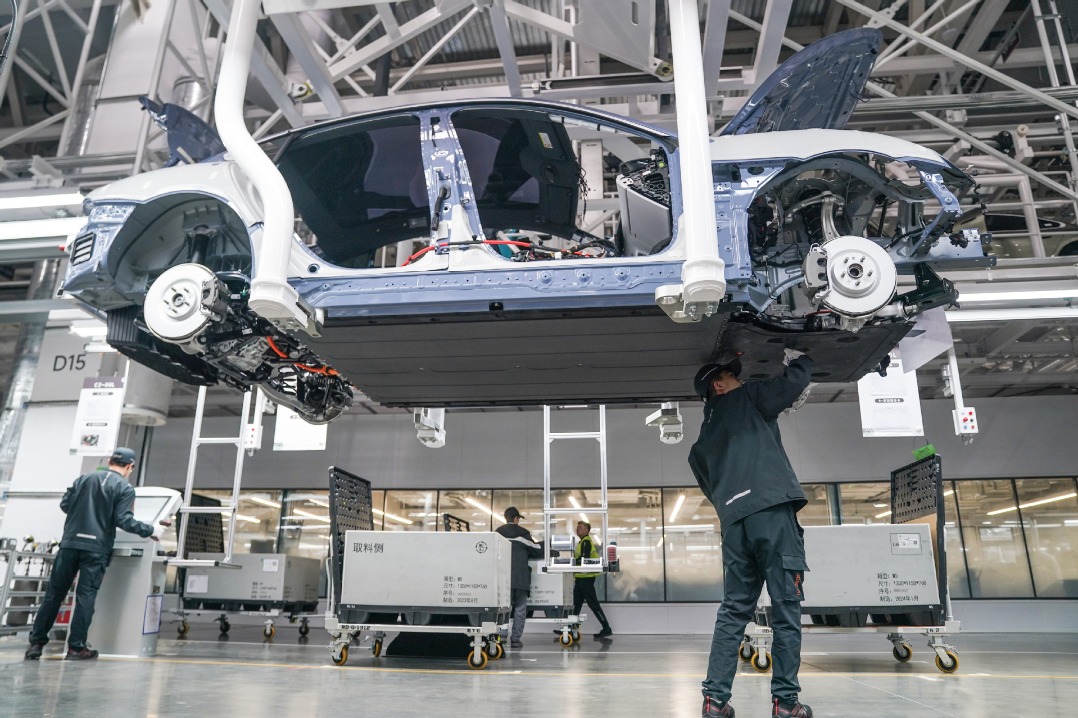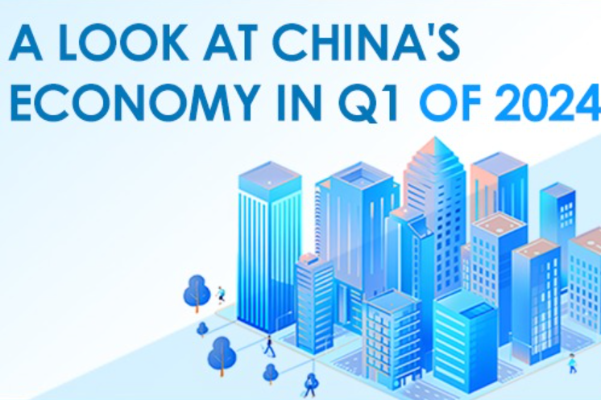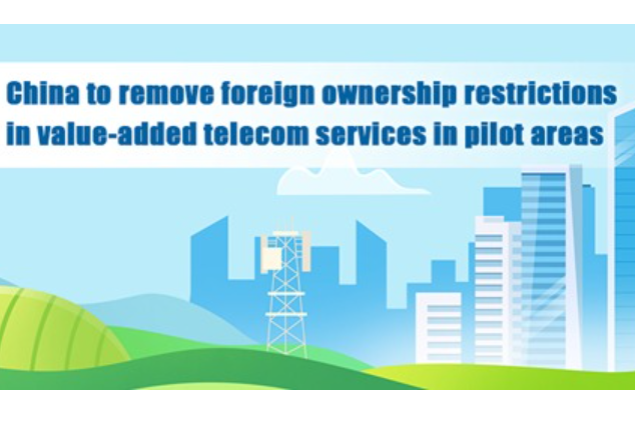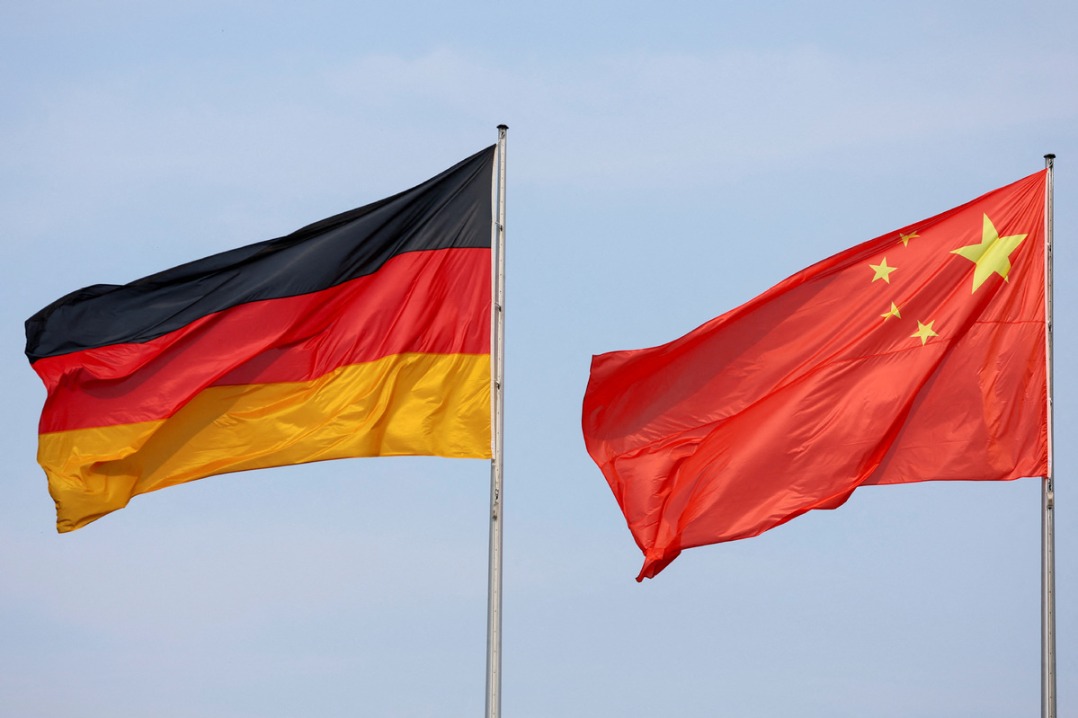Preferential policies

Chapter I General Provisions
Article 1. In order to implement the Western Development Strategy, increase investment and accelerate the economic and social development in the city, the policies are formulated according to the national and autonomous regional policies concerning the strategy and the practical situations of Hohhot.
Article 2. The policies apply to all enterprises from outside attempting to invest in Hohhot, including joint ventures, and wholly-owned and cooperative enterprises.
Chapter II Opening-up Policies
Article 3. All resources, industries, and markets in the city are open to the outside world, except for those with national special provisions. For a foreign enterprise legally engaged in business activities and setting up companies in the city, there is no limitation on invested fields and industries, on the enterprise's conditions, location and shareholding ratio, on business scope and investment ways, and on domestic and international sales.
Article 4. For a foreign enterprise investing less than $3 million or 30 million yuan in a non -"restricted" project that needs no balancing from the nation or the autonomous region, the Hohhot government authorities will only review its project proposal. It is up to the enterprise to decide whether to start construction or not after it meets all construction conditions. If starting the construction, the enterprise should inform the government authorities for the record.
Article 5. A foreign investor of projects such as roads, bridges and tunnels has a priority in land use along the project and in development in other industries. A foreign investor of an underground space project (including construction of air-raid shelters) enjoys the priority in use and in the ground development.
Article 6. A foreign enterprise establishing waste or sewage treatment plants, urban water plants or water purification plants, or road reconstruction projects in ways of BOT or TOT is given a 5-to-10-year extension of operation period, in addition to other preferential policies of the country and the autonomous region. A foreign enterprise is allowed to carry out project financing, including in renminbi.
Article 7. A foreign enterprise is allowed to engage in many ways in property and equity purchase and technological transformation of Hohhot's State-owned or collective enterprises.
A joint venture and a cooperative project funded by a local State-owned enterprise with its existing plants, space or equipment will have a discount of 10 to 20 percent in final price, after the asset price is assessed and confirmed.
Article 8. A foreign investor of projects in Hohhot will enjoy a 50-percent reduction in urban infrastructure fees and capacity-increasing fees, and if the project covers a floor area of more than 7,000 square meters, the civil air defense construction fee is halved. Export, high-tech and urban infrastructure investment companies are free of urban infrastructure fees.
Article 9. A foreign employee in a foreign-invested enterprise can apply for a valid visa of multiple entries in one year. If needing to go abroad or to Hong Kong and Macao for business, he or she can apply to the city public security authorities with his or her ID card.
Article 10. The local finance will give 0.05 yuan for every 1 dollar of foreign exchange income within a certain period as an inland transportation subsidy to a foreign trade company earning $2 million or more in exports a year. An enterprise of small-scale border trade is exempt from export licenses and enjoys treatments prescribed in the Inner Mongolia Autonomous Region's Border Trade Certificate. The threshold for rights of self-run export has been lowered from 3 million yuan of registered capital to 1 million yuan, and other standards for private companies can refer to those
Article 11. The city has established a guarantee fund of financing for foreign trade SMEs.
Chapter III Tax policies
Article 12. Exemptions of duty
(A) A foreign investor of a company or project in the city with 500,000 yuan or more is free of corporate income tax for the first three profit-making years, and in the following two years, the tax rate is reduced to 15 percent.
(B) A foreign investor of a national "encouraged" company or project in the city with an actual investment of 10 million yuan or more is free of corporate income tax for the first five profit-making years.
(C) Tariff and import value-added tax are exempted in imported advanced equipment, accessories and spare parts that a foreign-invested enterprise needs for a project in an "encouraged" or competitive industry in the city, except for those prescribed otherwise.
(D) A foreign investor acquiring or merging a local more-than-1-million-yuan company that is shutdown, semi-shutdown or loss-making, and relocating over 80 percent of the staff enjoys a 70 percent discount of the local retained portion of business, corporate income and value-added taxes for three years in a row after approval of the government.
(E) For a joint project to transform a loss-making enterprise, income tax is free for another three consecutive years after the enterprise makes enough profits to cover losses in previous years.
(F) An enterprise or public institution engaged in planting, breeding, and agro-forestry product processing is temporarily exempt from corporate income tax.
(G) After transformation, national or autonomous regional research institutes based in Hohhot are exempt from corporate income tax for five years, if qualified.
(H) A company with industrial waste as its main raw materials is exempt from income tax for five years.
(I) Farm products produced in the process of environmental protection and returning farmlands to forests and grasslands will enjoy a 10-year suspension from income tax.
(J) Research institutions and universities transferring scientific and technical achievements should reward the researchers with a share or proportion of capital contribution, which is exempt from personal income tax.
Article 13. Tax breaks
A foreign investor setting up a national key and "encouraged" company or project in the city is free of corporate income tax for the first five years, and in the next five years, the tax rate is reduced to 15 percent.
Article 14. Tax offset
(A) A taxpayer suffering loss in the year is allowed to cover the deficit with profits made in the following five years.
(B) Development expenses of a company can be disbursed before corporation income tax.
In addition, a profitable enterprise whose research spending on new products, technologies and techniques is 10 percent or more compared to that of last year can offset the current year's taxable income with 50 percent of the actual spending, which is not the case for a loss-making enterprise.
(C) A company can have 40 percent of its investment on China-made equipment needed for its technological transformation projects in line with national industrial policies offset by the corporate income tax gained after purchasing the equipment, for a maximum period of five years.
Chapter IV Land and Resources Policies
Article 15. Preferential policies on reclamation of five kinds of waste lands.
A company carrying out ecological protection including forest and grass conservation on a State-owned waste mountain and land owns the use right for 50 years after the construction, investment and greening is finished, in accordance with the government's No 91 document. After the 50 years, it can apply for an extension, inheritance or paid transfer.
A company planting trees on waste lands is exempt from all taxes for 20 years if it is a timber forest and 7 years for fruit trees.
A company converting farmland into forest or grassland on a 15-degree slope and a heavily sandy plain is exempt from agricultural taxes, volunteer work and other fees, after approval of the relevant departments.
Article 16. The city guarantees land for construction.
For urban infrastructure construction, educational causes and energy, transportation, water conservancy projects supported by the country, the city government provides land use rights through allocation. Construction land for State, provincial and county roads is free of farmland occupancy tax, like railways and civil aviation projects.
Article 17. A foreign investment enterprise can develop the land by tracts after obtaining the land use right legally. The validity of use right is 50 years for agriculture, 70 years for residential houses, 50 years for industrial function and 40 years for commercial services.
After expiration, it can apply for an extension in accordance with law.
Article 18. A foreign investment enterprise to invest 5 million yuan or more on an "encouraged" project and to obtain the land use right through transfer is allowed to pay land-transferring fees by installment after approved by the Government. After full payment, it can transfer, lease or mortgage the land legally.
If the company rents the land, it is exempt from rent within a prescribed construction period, and can apply for a reduction if there is difficulty in business after operation begins.
In the company obtains the land through administrative allocation, it should pay the land administrative department the land-transferring fees before it transfers, leases or mortgages the land. The company can also invest on a new enterprise with the land use right.
Article 19. Policies encouraging resource development
A company investing in development of the county’s scarce mineral resources or using new technologies and methods to improve its comprehensive development level is exempt from fees of exploration right and mining right for the first year, half for the second and third years, and 25 percent off for the fourth to seventh years.
A company cooperating with or merging with a mine enterprise is exempt from mining right fees coming from State funds.
A private company can inherit or transfer its legally-obtained exploration rights and mining rights, and lease or mortgage mining rights.
An individually-run mine can apply for a reduction of resource compensation fee and resources tax in accordance with related provisions.
Chapter V Policies for Talented Personnel
Article 20. The city has established special funds for human resource development, which are included in its financial budget and mainly used for talent development, recruitment, subsidies, training and rewards.
Article 21. The city has implemented a special allowance system. The government gives monthly allowances to on-the-job academicians of the Chinese Academy of Sciences and Chinese Academy of Engineering, PhD supervisors, and those with a senior professional title or a doctoral degree, who are hired by the city's enterprises and public institutions.
Article 22. The city handsomely rewards personnel with outstanding contributions. Those engaged in education and science research, having made outstanding contributions to technological innovation, high-tech industrialization and introduction of advanced technologies, and bringing huge benefits to the local economy will be granted a one-time bonus of 200,000 yuan to l million yuan after assessments.
Article 23. Scientists and technicians are encouraged to move into the city. For an immigrant talent who asks not to go through transferring procedures or change residence registration temporarily, the government will issue a work permit and a temporary residence permit which guarantee he or she can enjoy same treatment as local employers and residents.
Article 24. Senior experts, PhDs and high-level talents returning from overseas are not limited by the establishment of the employer, so they can enjoy two salaries for two different posts.
For retired senior technical personnel still responsible for the city's major economic development projects and retired special professionals needed by important duties can be rehired without limitations in company establishment or posts, after the approval of the government authorities.
Chapter VI Policies for Science and Technology Development
Article 25. The city encourages technological innovation.
A company or public institution developing technological achievements should award main researchers and related staff with over 10 percent of the project’s new profits for three consecutive years.
An individual participating in a company with self-developed high-tech achievements can have an achievement value accounting for up to 35 percent of the registered capital.
For government-funded development projects of technological achievements, achievements developers and operators of achievements transformation can enjoy no less than 60 percent of the return on equity for the first three years of project and no less than 40 percent in the fourth to sixth years.
A research institution and university funded by the society can offset taxable income with research and development funds in a certain percentage.
Article 26. The government provides support for high-tech industries.
The government has established a venture investment fund for the new and high-technology industries to help qualified companies set up start-up services centers and venture investment institutions, which offer test conditions and financing and management services for entrepreneurs.
The government provides land use rights through allocation for high-tech companies set up in Hohhot and reduce property tax for a local loss-making company merged by a high-tech company.
For a company developing and producing software products, the tax rate is 17 percent if it is a general taxpayer, and extra amount will be returned immediately to the company if its actual tax burden surpasses 6 percent. The tax rate is 6 percent for a small-scale taxpayer whose salary expense is disbursed before tax paying.
An export company of high-tech products is exempt from value-added tax.
Article 27. The city supports scientific and technological achievements.
A university or research institute transferring a technological achievement to a local company is exempt from local retained portion of its one-time transfer income. Revenues from technology consultancy and services related to technological transfer and others are exempt from business tax.
Chapter VII Education Development Policies
Article 28. A foreign investor to run a high school in the city is exempted from taxes.
Article 29. To encourage foreign investors to develop non-compulsory education in the city, such as high school and vocational education, and to participate in school logistics construction, the city reduces their related fees at same level as public schools.
Chapter VIII Investment Services and Other Policies
Article 30. The city prohibits arbitrary charges, fines and "devotions" imposed on enterprises. It has canceled all unreasonable charges and established standards to regulate fee collection. It also strictly implements the system of two licenses (charging license and toll-collector license), an approval notice of charging enterprises, a uniform receipt and a charging registration card, to safeguard the legitimate rights and interests of enterprises. Companies have the right to refuse illegal charges.
Article 31. The city has simplified registration and application procedures to improve efficiency. One-stop service centers set up by relevant departments provide efficient services for investment companies and open the approval process to public, in order to standardize procedures and strengthen supervision.
For a project or undertaking with a significant impact on the city's economic and social development, the government will treat special issues specially, hold one meeting or discussion for one case, and provide follow-up service, to help investors solve problems timely.
Article 32. The city has implemented an inspection registration and license system. Personnel to inspect a foreign enterprise must show a license granted by the city government, wear a badge, and register for the record. Companies have the right to refuse the inspection if the personnel fail to do so.
Article 33. The city, district and county-level governments have set up complaint centers for foreign investment enterprises. The centers receive complaint calls, investigate and address complaints, and give feedbacks timely.
Article 34. Intermediaries are hired to introduce foreign investment and get paid for achievements according to contracts. For an individual bringing direct foreign investment, the beneficiary gives a reward of no less than 1 percent of the actual capital it receives.
Chapter IX Supplementary Provisions
Article 35. The policies are subject to interpretation by the Legislative Affairs Office of the People's Government of Hohhot.
Article 36. These policies took effect on Jan 1, 2003. Relevant departments should abide by them strictly and formulate specific implementation measures accordingly.
This English version is only for reference. To learn more, please refer to the authoritative version.
MOST POPULAR
- 1 A look at China's economy in Q1 of 2024
- 2 China to remove foreign ownership restrictions in value-added telecom services in pilot areas
- 3 Query service of A Guide to Working and Living in China as Business Expatriates launched
- 4 Clear negative lists to speed up services trade
- 5 Canton Fair opens in China with surge in overseas purchasers
Editors' Picks
 Infographic:
How to understand China's production capacity
Infographic:
How to understand China's production capacity
 Infographic:
Milestones of China's journey to space
Infographic:
Milestones of China's journey to space
 Infographic:
A look at China's economy in Q1 of 2024
Infographic:
A look at China's economy in Q1 of 2024
 Infographic:
China to remove foreign ownership restrictions in value-added telecom services in pilot areas
Infographic:
China to remove foreign ownership restrictions in value-added telecom services in pilot areas
 Infographic:
2023 Sino-German investment and trade in numbers
Infographic:
2023 Sino-German investment and trade in numbers


